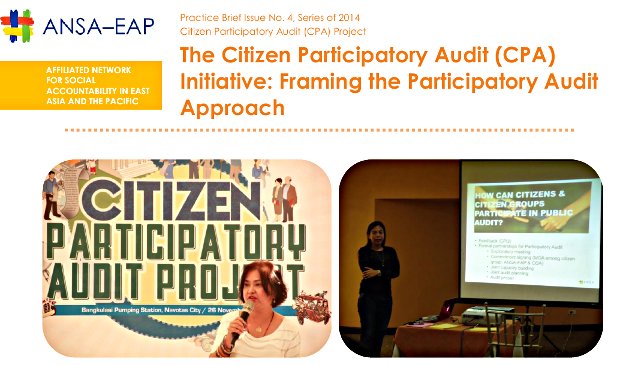The CPA project is a two-year initiative being implemented by the Affiliated Network for Social Accountability in East Asia and the Pacific (ANSA EAP) and the Commission on Audit (COA) – the supreme audit institution (SAI) in the Philippines. The overall goal is to make the public sector auditing system in the country more transparent and accountable through greater involvement of citizens in COA’s work. To achieve this end, the existing ANSA EAP-COA Project Management Team (PMT) has enhanced COA’s citizen feedback and response mechanism, continued piloting of COA-citizen joint audits at both the local and national levels, and initiated activities to install systems and processes within the COA geared at more sustained CPA practice
The current CPA project of ANSA EAP and COA builds on earlier gains from a similar initiative in 1999 funded by the United Nations Development Program (UNDP) and carried out by COA with the Concerned Citizens of Abra for Good Governance (CCAGG). Running through both efforts is an evolving framework of participatory audit that defines the rationale, objectives, and possible modes of engagement between
SAIs and active citizens for greater government accountability through public audits. This ANSA EAP Practice Brief issue shares and expounds on key elements of this emerging participatory audit frame, with the hope of broadening the on-going discussion among other stakeholders and encouraging other SAIs and citizen groups to apply it.
Read and download the “The CPA Initiative: Framing the Participatory Audit Approach” practice brief.

